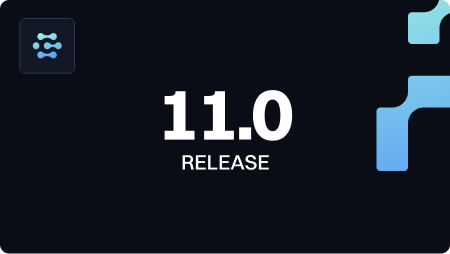Close, But No Cigar
ChatGPT can approximate -- but not completely mimic -- your writing style. The post Close, But No Cigar appeared first on Robot Writers AI.

ChatGPT Can Approximate — But Not Completely Mimic — Your Writing Style
Here’s the truth: While ChatGPT can mimic your writing style to some extent, the AI is not yet able to offer you an exact, 100% match of the way you choose your words — at least for now.
That said, unless you’re a professional writer — or someone who simply loves words with abandon — you may be perfectly satisfied with a quick, down-and-dirty prompt that mimics the broad strokes of your writing style in a ‘good enough’ way.
For example, if you’re not overly picky, you can use a down-and-dirty, write-like-me prompt using these words: “You are a world-class writer — with an irreverent sense of humor — known for clear, concise, colorful prose. Please rewrite the text following the colon using no less than 300 words and no more than 315 words:”
Such a prompt should be more than adequate for you –unless you’ve found yourself unable to sleep some nights because you’re tortured by a phrase you know should have been written just a bit differently.
Essentially: If you are among the easy-going-ilk, you can use the above prompt — or something similarly brief that better reflects your writing style– skip the rest of this post and saunter happily away, snickering at the rest of us.
However, if you’re like me and you often derive a deep, dark, twisted — and some might say concerningly disturbed — pleasure in agonizing over the wording, feel, cadence or some other highly esoteric feature associated with a single sentence, a single phrase — or even a single word — I’m afraid a down-and-dirty prompt won’t work for you.
Put another way: If you’ve suffered the fate of being a ‘born writer’ or a ‘born word-lover,’ you’ll need a much more sophisticated prompt to get you within shouting distance of what you consider to be your highly personal writing style.
For the record, the reason why ChatGPT is not yet able to offer you an exact, 100% match of your writing style is rooted in the method the AI uses to learn your writing style.
Specifically: ChatGPT learns to mimic your writing style by:
*Analyzing one or more samples of your writing
*Assembling of a list of generalized descriptors that it believes characterizes your work
*Referring to that list of generalized descriptors when you ask it to auto-write an email — or other text — in your writing style
The problem with ChatGPT’s approach: While resorting to assembling a list of general descriptors to characterize your writing style takes a decent stab at defining a highly personal writing style, its methodology unfortunately falls short — by its inherent design — of being able to fully mimic a highly personal writing style.
For example, ChatGPT may analyze a number of examples of your writing and conclude that one of its key features is that it’s ‘witty.’
But the problem with that descriptor is that witty is a generic term that applies to any number of variations of wit.
Robin Williams is witty.
But so is Mae West, George Carlin, Maria Bamford, Dave Chapelle, Ali Wong, Ricky Gervais, Amy Schumer and Eddie Izzard.
But as we all know, no one would ever mistake the wit of Robin Williams for the wit of Maria Bamford, confuse Dave Chappelle with Ali Wong, or listen to Amy Schumer and think, “Hmm, she sounds just like Eddie Izzard.”
Each of these world-famous comedians have etched their unique, comic perspectives on the world.
And that is the reason, in great part, why these masters of wit are so famous: They are witty like no one else on earth.
Unfortunately, this problem of using the generalized descriptor of ‘witty’ is compounded exponentially by the fact that ChatGPT also uses other, equally general and equally generic descriptors of your writing after reading a few samples of what you consider to be your best stuff.
For example: After analyzing your writing, ChatGPT may also conclude that your highly personal writing style is gripping, evocative, persuasive, authoritative — as well as any number of other adjectives that can be used to characterize what you’ve written.
And again, those descriptors do get ChatGPT closer to describing your singular, highly personal writing style.
But in the real world, as we know — and as we’ve seen with the characterization of ‘witty’ — there are countless shades of meaning that these descriptors are attempting to capture.
That said, with the right prompt that you personally fabricate, ChatGPT can still offer you a decent approximation of your writing style — which you can use as a strong draft of text that you subsequently polish.
Plus, given that ChatGPT has become increasingly more powerful and more refined with each new revision, there’s a chance that someday, ChatGPT may become so powerful and so perceptive, it may in fact be able to analyze your writing style with an unmatched, piercing, nano-focused insight — and then mimic your highly personalized writing style with breathtaking precision.
In the meantime, the good news is that getting ChatGPT to auto-write in a style that is a reasonable approximation of your writing style is fairly straightforward.
Here’s a quick summary of the steps:
Step One: Ask ChatGPT to analyze one or more samples of your writing style and generate a prompt to be used to mimic your writing style (which you’ll refine further).
Step Two: Take note of the descriptors ChatGPT uses in its report to you that serve as the basis of the prompt it created.
Step Three: Ask ChatGPT to run a second analysis of the descriptor categories it missed that you’d like included in its characterization of your writing style.
Step Four: Edit ChatGPT’s prompt to your liking.
Step Five: Test the prompt.
Step Six: Revise the prompt as needed.
Give it a shot — and then when ChatGPT comes out with its promised upgrade early this year, give it another shot.
You may get much better results the second time around.

Share a Link: Please consider sharing a link to https://RobotWritersAI.com from your blog, social media post, publication or emails. More links leading to RobotWritersAI.com helps everyone interested in AI-generated writing.
–Joe Dysart is editor of RobotWritersAI.com and a tech journalist with 20+ years experience. His work has appeared in 150+ publications, including The New York Times and the Financial Times of London.
The post Close, But No Cigar appeared first on Robot Writers AI.













/cdn.vox-cdn.com/uploads/chorus_asset/file/25832232/honor_magic_7_pro.jpg)





